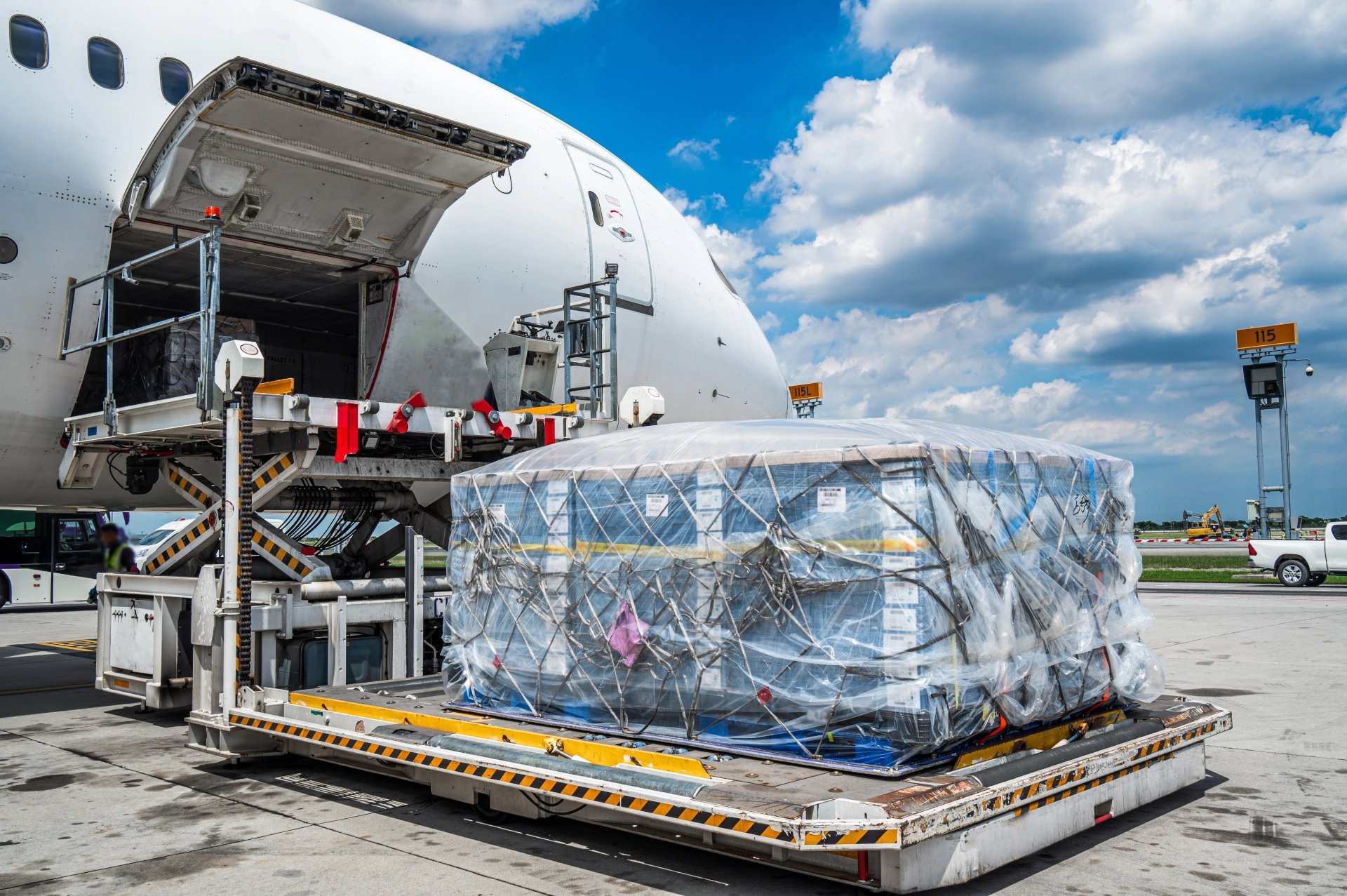The INSPED Personal Shipper Supporting a Family Starting a New Life
More than logistics: a matter of trust
When Every Shipment Tells a Story
Some shipments require precision.
Others demand care, empathy, and human presence.
When a young family reached out to us to organize their international move to Miami, we immediately understood it was more than transporting furniture and boxes.
That shipment carried a whole life — meaningful objects, daily habits to rebuild, and cherished memories to preserve thousands of kilometers away.
The INSPED Personal Shipper was the key to turning this move into a successful and seamless journey.
👉 Learn about the Personal Shipper service

The Role of the INSPED Personal Shipper: Beyond Transportation
Marco, one of our most experienced Personal Shippers, managed every phase of the process.
From the first meeting, he understood that the request went far beyond technical logistics.
It was about listening, guiding, and supporting the family through a delicate life transition.
With professionalism and empathy, he oversaw each step:
- Selecting custom packing materials based on fragility and sentimental value
- Coordinating with local suppliers
- Managing the loading process
- Providing support throughout the entire customs phase (👉 see official U.S. Customs info →)
- Confirming arrival and unlocking final logistics at destination
The Power of Real Presence
Throughout the entire process, the family had one single point of contact.
No call centers. No automated platforms.
Only Marco — his voice, expertise, and reliability.
The INSPED Personal Shipper didn’t just manage a shipment. He walked beside the family through each emotion and logistical challenge:
- Ongoing updates
- Prompt management of unexpected issues
- Practical advice for handling delicate items
- Human understanding and care
📩 At the end of the move, the family sent us this message:
“We didn’t just move furniture. We moved our entire life. Marco was the thread that held everything together: the tension, the emotions, the effort. We’ll never forget his presence.”
When Logistics Becomes a Relationship
This case history is a perfect example of what makes the INSPED Personal Shipper service unique.
Every shipment is more than a delivery — it’s a story.
Every client, a relationship to nurture.
Our tailor-made logistics approach doesn’t just follow documents or operational standards.
It follows people, their worries, their goals, and their new beginnings.
Do You Need a Real Point of Contact for Your Shipments?
If you’re facing an international move, a sensitive shipment, or a complex logistics project, don’t rely on automated systems.
👉 Contact INSPED and request your INSPED Personal Shipper: a real person, always by your side.
📌 Request your dedicated contact now →
Organising an International Shipment Without Surprises
Plan your international shipment with confidence
Are you planning an international shipment and want to make sure everything goes smoothly with customs? One of the most critical steps is understanding how internal customs works. Knowing the rules, what documents to prepare, and how the procedures unfold is essential to avoid delays or penalties.
In this article, we guide you step by step through everything you need to know about internal customs: its roles, required documentation, and key procedures.
What is internal customs?
Internal customs is a public authority responsible for the control and management of goods (and in some cases, services and data) that enter or exit a national territory. Unlike border customs, internal customs operates in later phases, verifying compliance with applicable regulations even after goods have physically crossed the border. Its main functions include:
- Verifying compliance of goods and services with national and international regulations
- Applying duties, taxes, and customs charges
- Enforcing fiscal, health, and safety standards
- Preventing fraud and illegal trade
- Supporting businesses with customs-related processes
Why Internal Customs Matters
Internal customs plays a strategic role in facilitating international trade. Thanks to its controls:
- Compliance with EU and national regulations is ensured
- Consumers, the environment, and companies are protected
- Customs processes can be expedited when documents are properly prepared
What Documents Are Required?
To avoid delays or complications, it is crucial to prepare the correct documentation. The key documents include:
- Transport Document (CMR, Bill of Lading, AWB)
- Detailed Commercial Invoice
- Customs Declaration Form (SAD/DAU)
- HS Codes and Tariff Classification
- Certificates of Origin or Compliance, when required
- Tax Documents for VAT and import duties
👉 Need help with preparing these documents? Insped can support you with its Internal Customs Service.
Key Procedures and Compliance Steps
Here’s an overview of the main phases in the internal customs process:
Identification and classification of goods
Review of applicable rules (e.g., duties, VAT, restrictions)
Preparation of the customs declaration
Submission of all required documentation
Possible physical or documentary checks
Customs clearance and release of goods
Every step must be handled with care to ensure compliance and avoid delays in delivery.
Customs Terms You Should Know
Customs language often includes technical terms. Here are a few key definitions:
- SAD/DAU: Single Administrative Document for customs declarations
- TARIC Code: EU customs classification system
- Preferential Origin: Allows duty reductions under trade agreements
- Intra-EU Shipments: Goods movements within the EU, subject to specific rules
💡 Visit our glossary section for more detailed explanations.
Internal Customs Isn’t Just for Physical Goods
It’s a common misconception that customs procedures only apply to physical goods. In fact, services and data flows may also be subject to customs checks, particularly in regulated or sensitive sectors.
Conclusion: Tackle Internal Customs With Confidence
Understanding the rules, documents, and procedures of internal customs is essential for successful international shipping. Working with professionals like Insped can help you save time, avoid costly mistakes, and manage each phase with peace of mind.
📌 Looking for tailored advice?
Visit our dedicated Internal Customs page or contact us directly.
Insped Awarded CRIBIS Prime Company Recognition Once Again
This year, Insped has once again been awarded the prestigious CRIBIS Prime Company certification, a recognition granted by CRIBIS D&B, a company specialized in providing commercial information on Italian and international businesses. This certification represents the highest level of commercial reliability and is awarded to only a small percentage of Italian companies.
Receiving this recognition once again is a further confirmation of Insped’s financial strength, transparency, and punctuality in payments to suppliers.
What is the CRIBIS Prime Company Certification?
The CRIBIS Prime Company is one of the most coveted certifications in the business world. It is awarded to only 7.6% of over 6 million Italian companies, and it certifies a company’s trustworthiness in commercial transactions and its ability to meet financial commitments consistently and reliably.
This recognition is the result of a rigorous evaluation process that identifies the most virtuous and financially solid companies in the Italian business landscape.
Who is CRIBIS and What Are the Evaluation Criteria?
CRIBIS D&B is part of the CRIF SpA Group, a European leader in credit information systems, and operates in partnership with Dun & Bradstreet, a global leader in business information.
The CRIBIS Prime Company recognition is based on a sophisticated scoring model that evaluates the likelihood of a company incurring commercial defaults within the following 12 months. The assessment takes into account several key factors, including:
- Company registry data
- Geographic location and industry sector
- Financial ratios and economic performance
- Company age and operational stability
- Payment history with clients and suppliers
- Any reports of financial distress
Only companies that demonstrate flawless financial management and strong business relationships are eligible for this recognition.
A Seal of Insped’s Reliability
Being awarded the CRIBIS Prime Company recognition for the second consecutive year is a clear sign of Insped’s credibility and reliability in the shipping and logistics industry.
🔹 For our clients: this certification guarantees stability, transparency, and high-quality services.
🔹 For our suppliers and partners: it confirms a solid and trustworthy relationship built on timely payments and mutual trust.
Our mission remains the same: to offer our clients and partners the highest level of professionalism, constantly investing in efficiency and reliability.
💡 Want to learn more about our company and services?
📩 Contact us for more information!
Insped is Possible because? Business 24 interview
Let's review the cornerstones of our DNA
We take the opportunity of being guests of Business24 and the Impresa Possibile program to go over together some key points that define Insped's DNA: a story of passion, growth and innovation, which began in 1988. Founded by Davide Milani's father, Insped took its first steps as a project with the goal of bringing value to the shipping industry.
In 1990, our headquarters with warehouse was opened in Ornago, a strategic point for goods management. In 2006, we duplicated the successful experience of the Ornago warehouse by opening a new location in Brendola, in the heart of the Northeast. Over the past ten years, we have consolidated our growth by creating a true logistics hub, capable of meeting the challenges of an ever-changing market.
International Shipping: our mainstay
Our core business is International Shipping, an area in which we have excelled in adaptability and global vision. Thanks to a strong network of partnerships around the world, we have been able to weather various international crises, seizing opportunities in growing markets and ensuring business continuity even in difficult times. Diversification has been another key factor: not only in terms of geographic markets, but also in the variety of clients and sectors served, with a particular focus on manufacturing.
Insped: more than just a shipment
We do not simply move goods from point A to point B. Each shipment is the result of special attention to customer needs, with an approach that is distinguished by care and dedication.
Among our strengths is the figure of the Personal Shipper, a real person who follows each customer through all stages of the shipment. This is not a chatbot or an automated system, but a professional who provides real and personalized assistance, turning each shipment into a unique experience.
We take care of your goods
This is our slogan and, at the same time, our mission. We put our heart into everything we do, thanks to an extraordinary team that works with passion, professionalism and dedication every day to provide the best possible service.
Ringraziamo Business24 per averci dato l’occasione di raccontare la nostra storia e i nostri valori.
Un grazie speciale va anche a tutto il nostro staff, il cuore pulsante di Insped, e ai nostri clienti che continuano a scegliere e a credere in noi.
🎥 Here is the full interview:
European Transport: Market Overview
Transport in Europe is a vital sector for the continent's economy, directly influencing economic growth, social cohesion and environmental sustainability. In recent years, the European transport market has faced significant challenges, including:
- The need to reduce carbon emissions,
- The integration of digital technologies,
- The increased demand for more efficient logistics solutions.
The rise of e-commerce and the expansion of urban networks require new strategies to optimize the flow of goods and people across borders.
The road transport sector in Europe is under increasing pressure to adopt greener, more efficient practices.
The European Union has set ambitious targets to reduce greenhouse gas emissions, pushing companies to invest in low-emission vehicles and charging infrastructure for electric fleets.
At the same time, digitalization is transforming transport management:
Advanced traffic systems, cloud-based logistics platforms, and IoT solutions are significantly improving operational efficiency.
Initiatives like the European Green Deal emphasize the importance of transitioning to a more sustainable and resilient transport system.
However, this transition also presents significant opportunities. Technological innovations in the transportation sector offer new opportunities to improve business competitiveness and create added value. In particular, advances in electric mobility, autonomous vehicles, and the use of big data can revolutionize the way transportation services are designed and implemented.
In summary, while transport in Europe faces complex challenges, it also offers many opportunities to innovate and build a more efficient, sustainable future.
Challenges and Opportunities in European Transport
European transport is undergoing a major transformation, facing both critical challenges and promising opportunities.
One of the main challenges is reducing environmental impact, in line with the EU Green Deal goals. Transitioning to sustainable transport involves:
- The adoption of low-emission technologies,
- The electrification of trucking fleets.
This requires massive investment in green infrastructure and a rethinking of traditional business models.
Another challenge is the integration of transport networks across EU Member States. Regulatory and infrastructure differences can hinder efficient cross-border flows of goods and people, calling for stronger EU-level coordination.
On the other hand, innovation is creating exciting opportunities:
- Digital solutions such as intelligent traffic management systems,
- Advanced logistics platforms that optimize routes and reduce delivery times.
In addition, the development of high-speed rail transport offers a viable alternative to air travel over medium to long distances, helping to relieve congestion on European roads.
The sector also benefits from the increasing demand for efficient logistics, driven by the boom in e-commerce, offering companies the chance to:
- Further innovate supply chains,
- Improve the global competitiveness of European enterprises.
In summary, the future of European transport depends on the industry's ability to meet these challenges with innovative and collaborative solutions.
Technological Innovations in the Transport Sector
Across Europe, advanced technologies are reshaping the transport sector, offering innovative solutions to current and future challenges.
Autonomous Vehicles
One of the most significant areas of innovation involves autonomous vehicles, which are expected to greatly improve both efficiency and safety.
Equipped with AI and sensors, these vehicles are being tested in several European cities to:
- Reduce traffic accidents,
- Optimize traffic flows.
Intelligent transportation systems (ITS)
Another key advancement is the rise of ITS (Intelligent Transport Systems), which use real-time data to manage urban mobility.
These systems enable:
- More effective traffic management,
- The reduction of travel time,
- A lower environmental impact,
- The efficient use of existing infrastructure.
Energy transition and electric vehicles
The shift to sustainable energy solutions is accelerating thanks to the expansion of the EV charging network. Cross-border cooperation is essential to ensuring consistent coverage across Europe.
Intermodality and Digital Platforms.
Intermodality is becoming increasingly central to European transport, with digital platforms facilitating the combination of different means of transport for more efficient, environmentally friendly travel.
These innovations improve the user experience and contribute to a sustainable and efficient transportation system.
International Shipping: Differences, Hubs and Parcel Preparation
International Shipping: Differences and Importance
International Shipping is a key aspect of global trade. Differences and Info logistics planning In fact, the latter involve the transport of goods within a single country, while international shipments involve the passage of goods between different states, requiring more complex management
- Differences between Domestic and International Shipments
- What International Hub Means
- International Shipping: Definition and Processes
- How to Prepare a Package for an International Shipment
- Useful Links
.
.

.
.
Differences between Domestic and International Shipments
Domestic Shipments are simpler and less expensive than International ones. this is mainly due to the absence of customs procedures, import taxes, means, and less bureaucratic complexity. In contrast, International shipments require more careful planning, including dealing with different countries' customs regulations, taxes, and any restrictions on the items being shipped.
International Shipments may also involve longer distances and longer transit times. Shipping companies must ensure that packages are well packed and accompanied by the correct documentation to avoid delays.
What the International Hub means
An International Hub is a strategic point within the global shipping network where goods are collected, consolidated and sorted to different destinations. These Hubs, located near ports, airports and logistics centers, play a key role in optimizing delivery times and reducing costs.
International Hubs improve the efficiency of international shipments by consolidating loads and minimizing transportation routes.
International Shipping: Definition and Processes
An international shipment refers to the transport of goods from one country to another. This process involves a number of complex steps, including selecting the method of transportation (air, sea, and land) preparing customs documentation and working with don various international couriers. Every international shipment requires attention to ensure that the goods arrive safely and without delay.
How to Prepare a Package for an International Shipment
For safe and effective international shipping, it is crucial to properly prepare the package:
- Use a sturdy box of appropriate size.
- Pack the contents with protective material, such as bubble wrap
- Clearly label the address of the recipient and the sender
- Check the customs regulations of the destination country and properly complete the necessary documentation
International shipping offers companies the opportunity to expand their markets globally, but it requires expertise in logistics and efficient handling of customs procedures. With careful planning and the use of International Hubs.
Useful Resources



